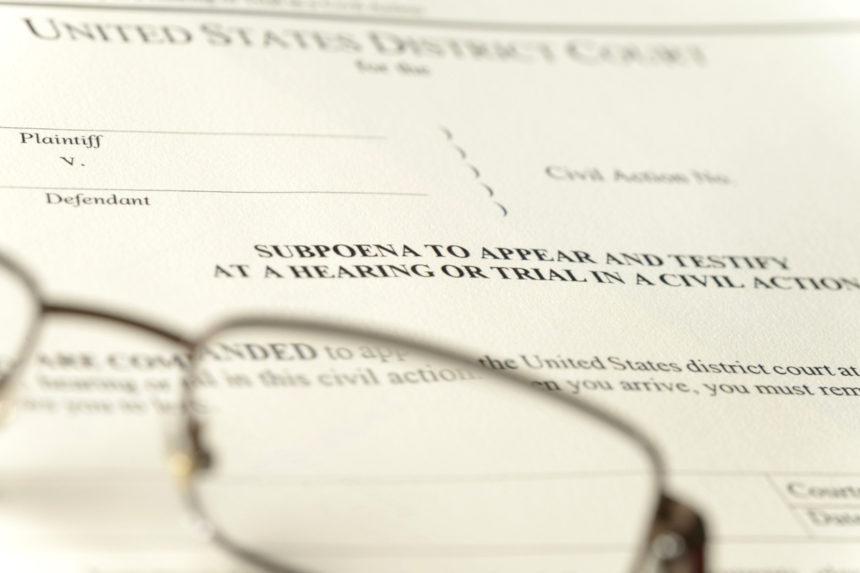Managing editor and logophile Andy Hollandbeck reveals the sometimes surprising roots of common English words and phrases. Remember: Etymology tells us where a word comes from, but not what it means today.
After the 2018 mid-term elections, Democrats came away with a majority of the seats in the House of Representatives. The House — and therefore the Democratic Party following the swearing-in ceremony — now had the power to subpoena individuals.
This week, we’ve seen that power exercised: Not only did the House Intelligence Committee subpoena Donald Trump Jr. about Trump Tower Moscow, but in a rare cross-aisle joint request, Democratic Intelligence Chair Adam Schiff and his Republican counterpart Devin Nunes subpoenaed the Justice Department for the full, unredacted Mueller report.
Subpoenas are in the air and on the news constantly these days, but what exactly is a subpoena, and — more on point for this column — where does the word come from?
A subpoena is a government writ, usually from a court, demanding that a particular person named in the writ either appear and testify (a subpoena ad testificandum) or offer evidence (a subpoena duces tecum) on a particular subject.
As for the word itself, you’ll recognize the sub-prefix, meaning “under,” from words like submarine, subliminal,and subprime mortgages. Poena is the Latin word for “penalty” — it’s also the root of the words punish and pain. Subpoena, then, literally means “under penalty,” and the documents were first called subpoenas because, in the early 17th century, that was the phrase that began the document.
A subpoena is not a request; it’s a demand. And the idea that someone failing to respond to a subpoena risks punishment is embedded right in the name. Exactly what the penalty should be is a matter of law, though, not etymology. While there are some ways to avoid what is demanded in a subpoena (the Fifth Amendment outlines some special cases), they are legal documents that should be taken seriously. Failure to do so could result in fines, prison time, or both.
Featured image: Shutterstock
Become a Saturday Evening Post member and enjoy unlimited access. Subscribe now




Comments
Thanks for this feature Andy, that really delves pretty deeply into the word. Although I did know what a subpoena was, I didn’t know the ‘finer points’ of it. No doubt with the current President and administration we’ll be hearing the word a lot more. Whether we’ll actually see them in action and enforced with the daily circus everything’s been for over two years now, remains to be seen.